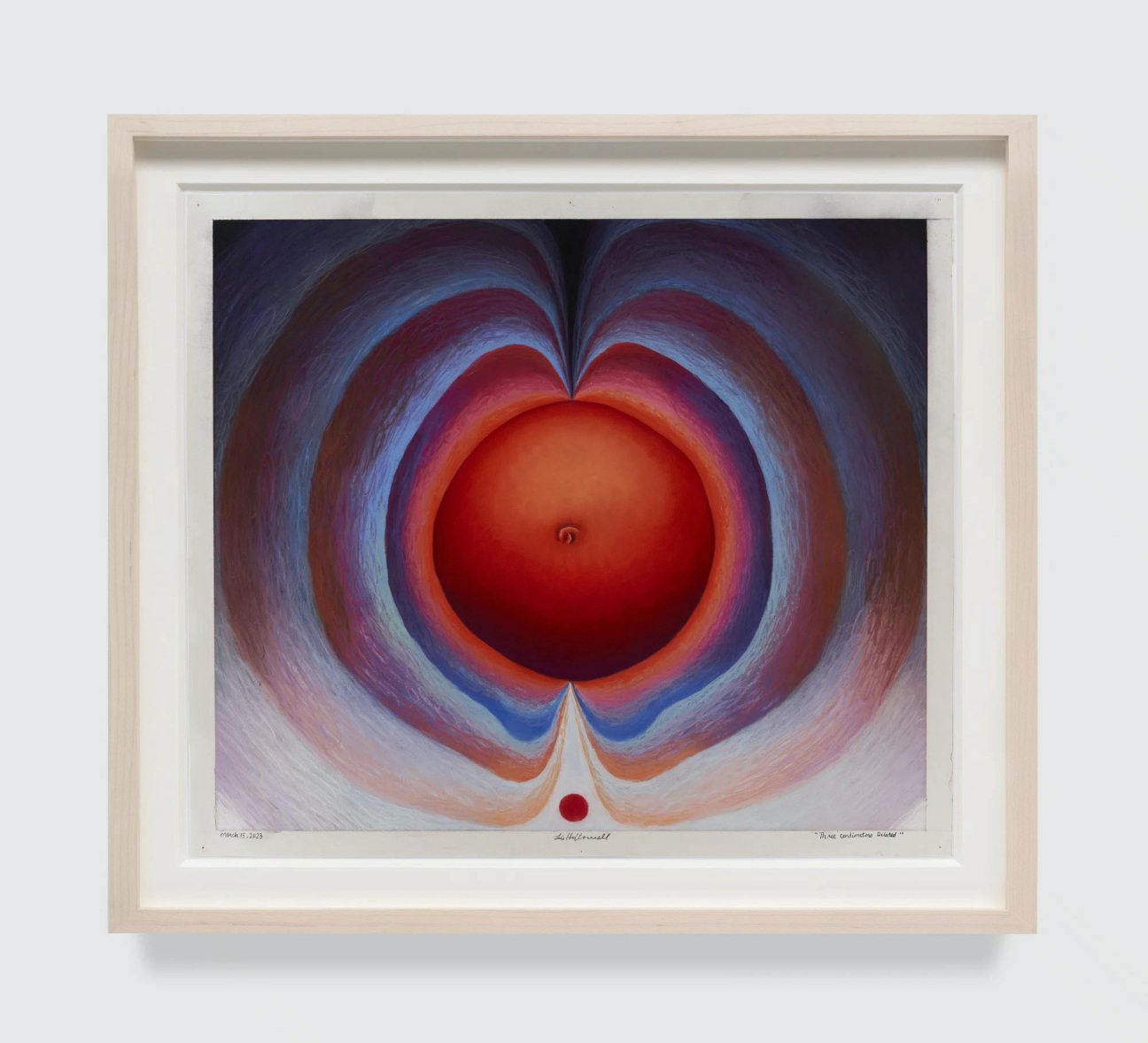
New York
“Dilation Stage” by Loie Hollowell
Where: Pace, 540 West 25th Street
When: March 8 – April 20
Why It’s Worth a Look: Though she is known for her ethereal paintings, Hollowell’s works on paper are just as arresting, and “Dilation Stage” is the first New York exhibition to focus entirely on this aspect of her oeuvre. Ten new pastel pieces by the artist track the process of dilation during pregnancy, sequentially showing the broadening of the cervix with radiating flashes of color.
Know Before You Go: The exhibition is concurrent with Hollowell’s first museum survey, which is on view at the Aldrich Contemporary Art Museum in Ridgefield, Connecticut through Aug. 11.
“In Passing” by Nicole Coson
Where: Silverlens
When: March 7 – April 20
Why It’s Worth a Look: And here is an ode to the shipping crate. The seemingly throwaway material is given center stage in Coson’s first solo exhibition with Silverlens. Shown lengthwise, standing, and in any other conceivable position, the crate prints draw attention to our typically obscured food systems. Coson reimagines an emblem of a process riddled with inefficiency and waste, and that few can afford to buy their way out of.
Know Before You Go: Also on display is an installation of aluminum-cast Aklan oyster shells, which cascade down from the ceiling. The chain ropes are designed to mimic the harvesting of oysters on bamboo sticks in the Philippines.
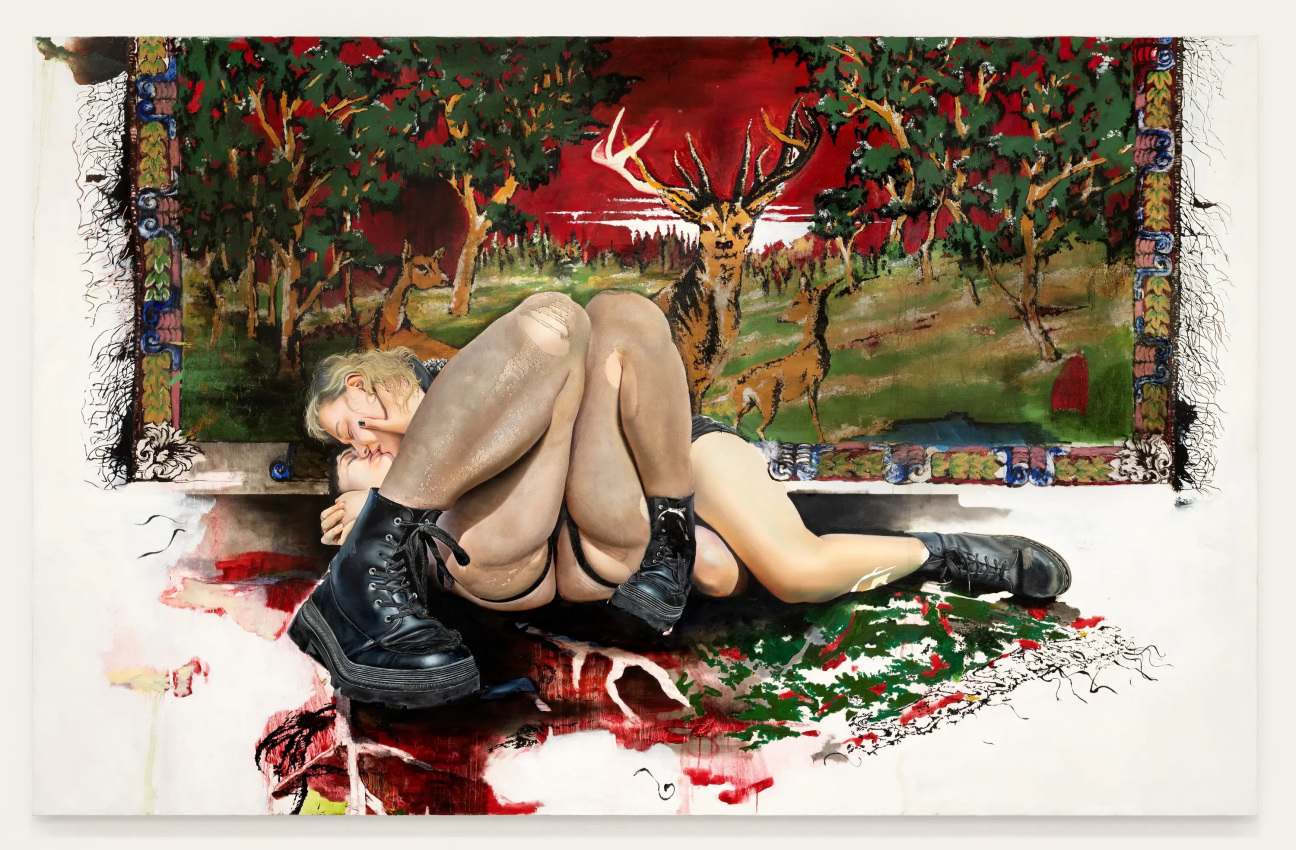
“Familiar Openings” by Sixten Sandra Österberg
Where: Company
When: Through April 20
Why It’s Worth a Look: In her first exhibition with the gallery, Österberg blends the high and low to dazzling effect. Traditional figuration and the art historical trend of placing paintings inside paintings are meshed with contemporary touchpoints. Ripped stockings and dorm room tapestries surround the characters in these blistering compositions.
Know Before You Go: The intimacy of the scenes, depicting passionate kisses and semi-nude figures, is offset by the fact that no one holds the gaze of the viewer. The averted eyelines add a touch of voyeurism to the collection.
“Plan B” by Susan Chen
Where: Rachel Uffner
When: March 8 – April 20
Why It’s Worth a Look: Thirty-nine figures appear in Chen’s second solo exhibition with Rachel Uffner. Each portrait was painted live during a 3-hour afternoon session with the subject. Chen met a portion of the sitters at Planned Parenthood events, and recruited the rest from online forums. In her work, women often reduced to an archetype are fleshed out, given a story that travels beyond the day they showed up to a clinic.
Know Before You Go: The exhibition also marks a new venture for the artist: ceramics. A selection of pieces are on view alongside her paintings.
“Uneasy Listening” by Nora Riggs
Where: Tappeto Volante
When: March 10 – April 21
Why It’s Worth a Look: In Couple and Driver, one of the paintings on view in Riggs’s latest exhibition, a cab driver throws a glance back at the couple locking lips in his back seat. Somehow, the artist packs three emotionally complex characters into the flat surface, which is coated in a smattering of visible brushstrokes. The series of figurative works and still lifes all traverse the same planes of longing, loss, and lust, to great effect.
Know Before You Go: Prior to settling in Northampton, Massachusetts, Riggs worked for years as a night guard for New York’s Met Museum. The evenings spent wandering through the pieces on display continue to inform her own compositions.
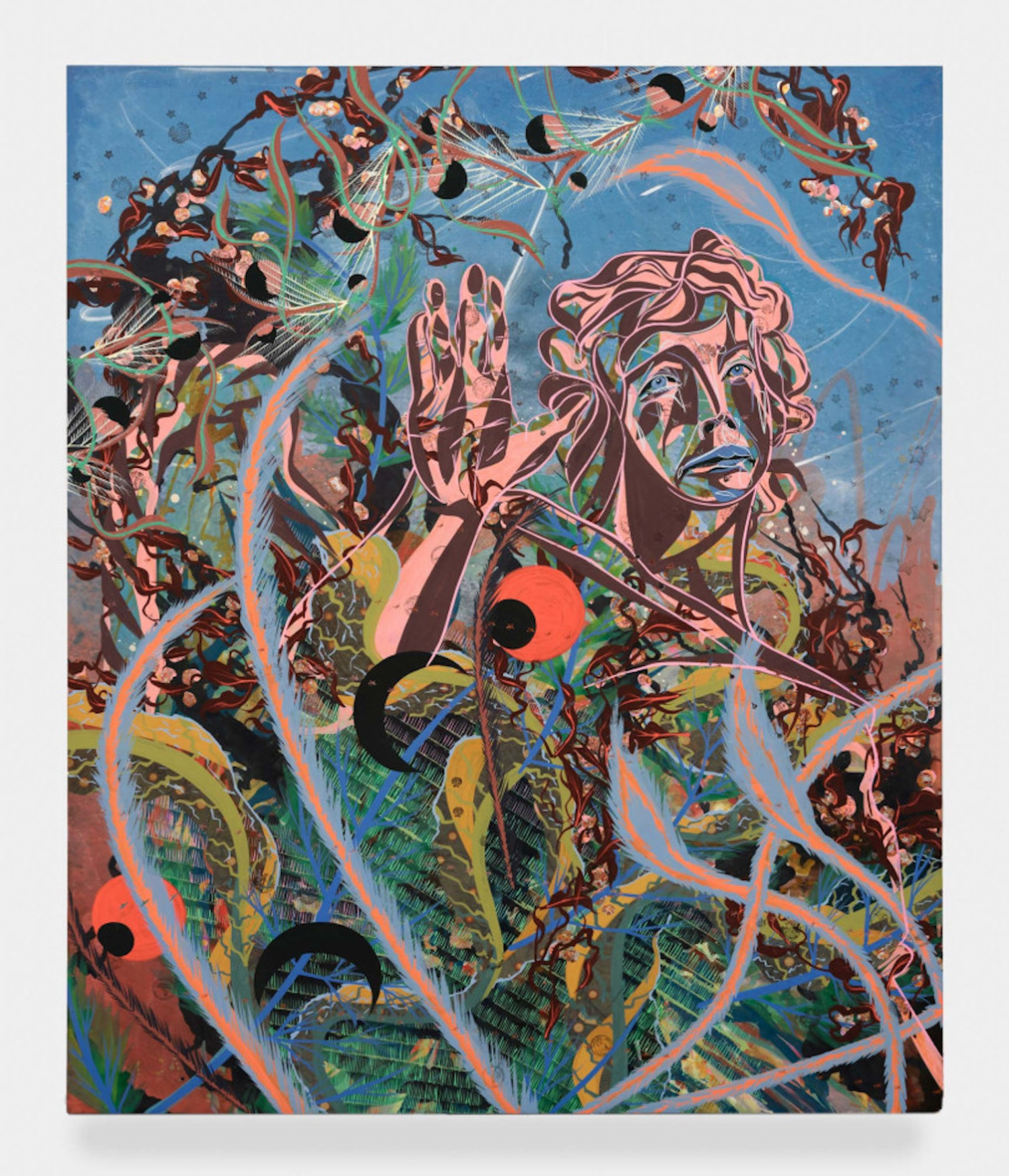
London
“A Comedy for Mortals: Purgatorio” by Tammy Nguyen
Where: Lehmann Maupin
When: March 13 – April 20
Why It’s Worth a Look: Here, Nguyen likens Dante Alighieri’s Divine Comedy to the geopolitical circumstances of Southeast Asia during the Cold War. A collection of paintings, works on paper, and an artist’s book narrate a period of existential anxiety, with nuclear warfare looming large. The Grasberg Mine in Indonesia is cast as purgatory, and Nguyen descends into its chasm with characteristically elaborate compositions.
Know Before You Go: This show is one in a three-part series from Nguyen, all pulling from the Divine Comedy. “A Comedy for Mortals: Inferno” was on view in Seoul last March, and the series will end next year with “A Comedy for Mortals: Paradisio,” the artist’s debut exhibition in New York.
“700 Nights of Winter” by Li Hei Di
Where: Pippy Houldsworth
When: March 15 – April 20
Why It’s Worth a Look: A human leg seems to pop out of one of Li’s paintings; elsewhere, there is the hint of a half-hooded eye. In these semi-legible fields of color, the artist navigates her experiences of queer desire and acceptability. In a heteronormative society, these impulses are often obscured, but not lost entirely.
Know Before You Go: The exhibition also plays with the notion of a “pharmacopornographic regime.” The term was invented by philosopher Paul B. Preciado to encapsulate the unique crossover between the pharmaceutical and pornography industries.
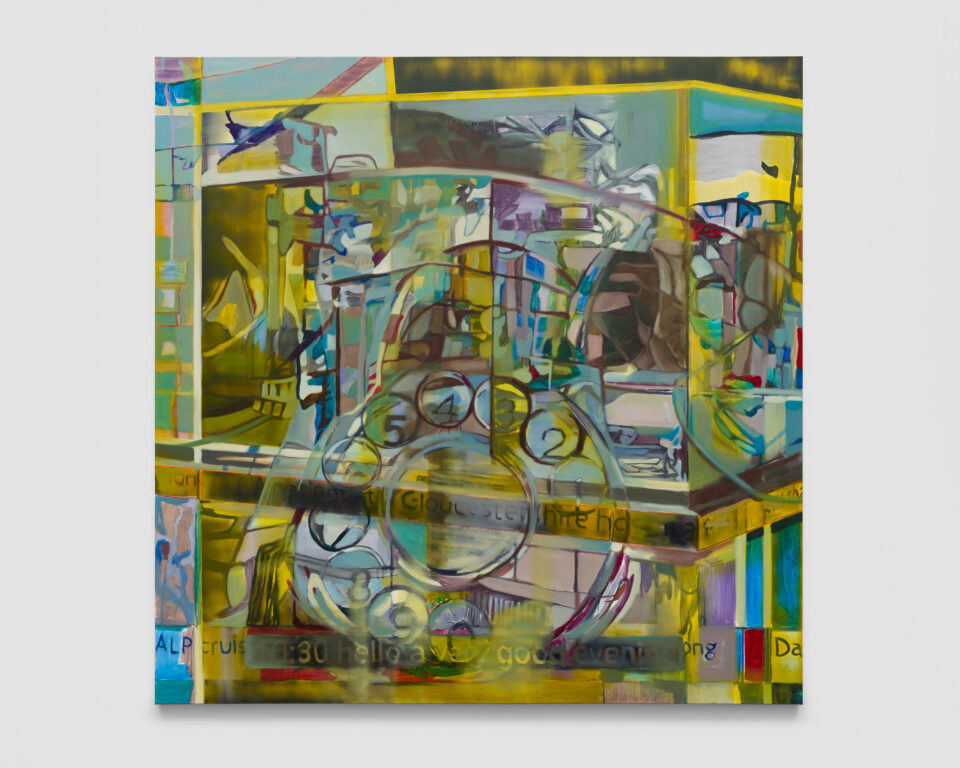
Los Angeles
“Chronicler” by Gabrielė Adomaitytė
Where: Clearing
When: March 9 – April 20
Why It’s Worth a Look: The storage of our knowledge and artwork is all moving online, bypassing the era of tangibility. At such a crossroards, the preservation of these archives become increasingly important. Destruction is often a click away. Much of the inspiration behind Adomaitytė’s work comes from research into this topic. Aspects of new and old technology meld in her compositions, themselves oil-based callbacks to an earlier mode of image generation.
Know Before You Go: The paintings are layered with references to historical inventions, becoming archives in their own right of time and technology gone by. A central concern for Adomaitytė is the subjectivity of our collective cultural memory, often incorrectly assumed to be an impartial repository of knowledge.



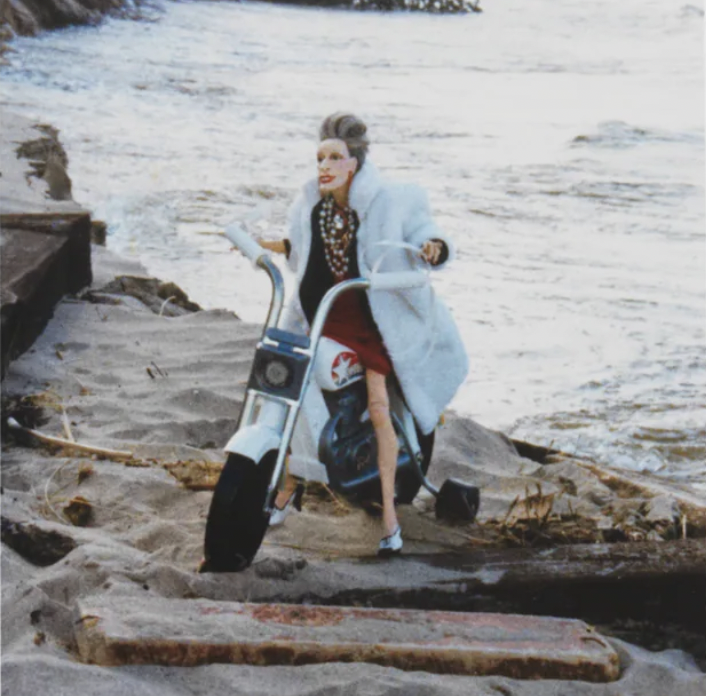


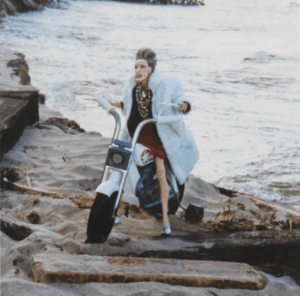



 in your life?
in your life?

